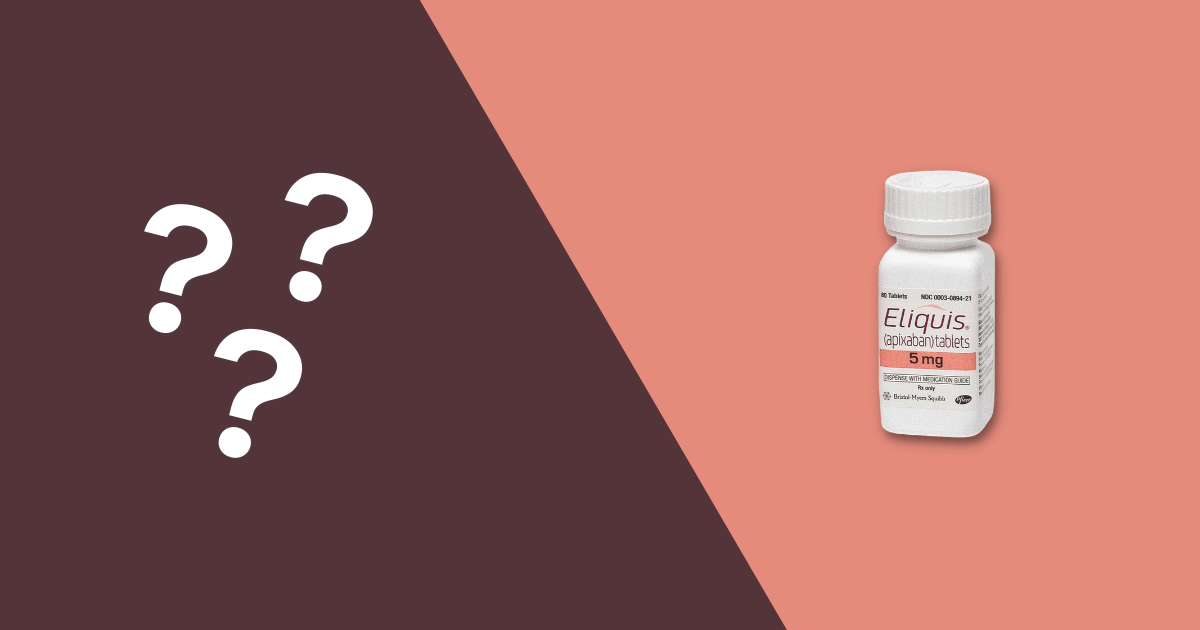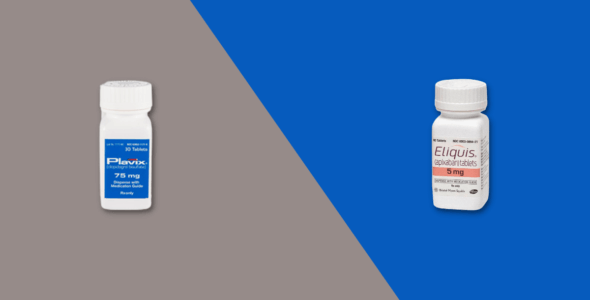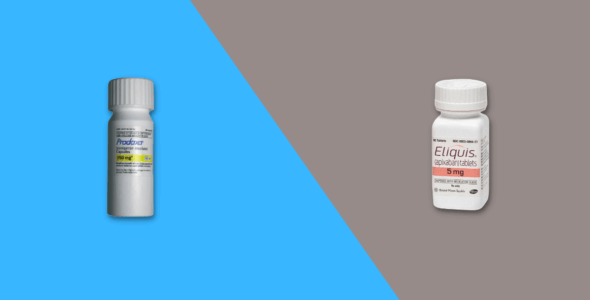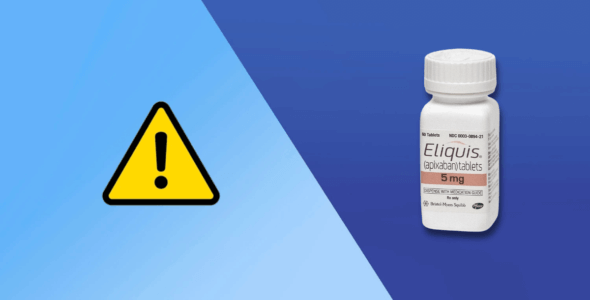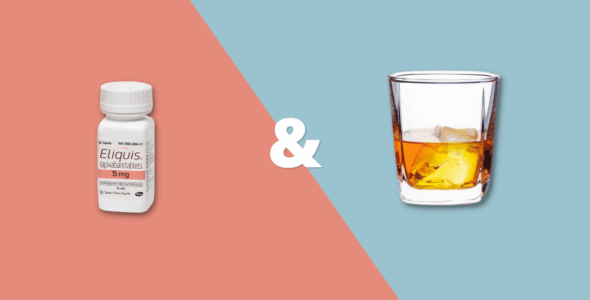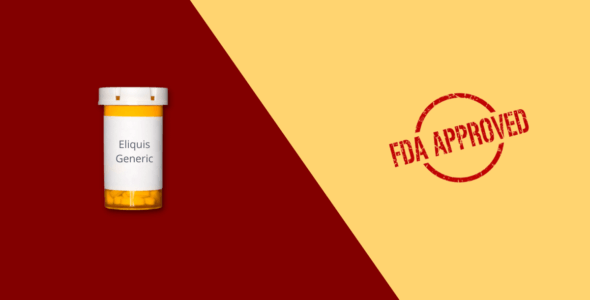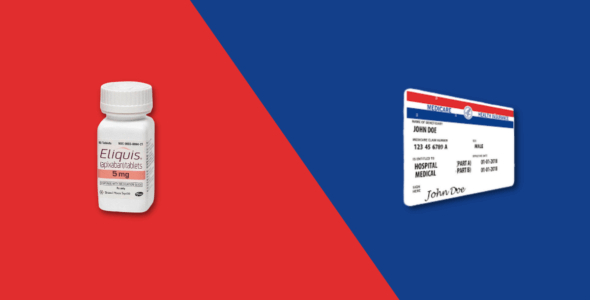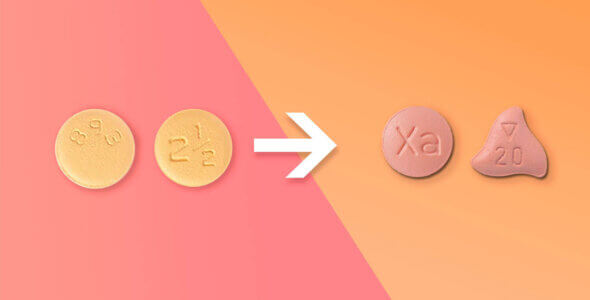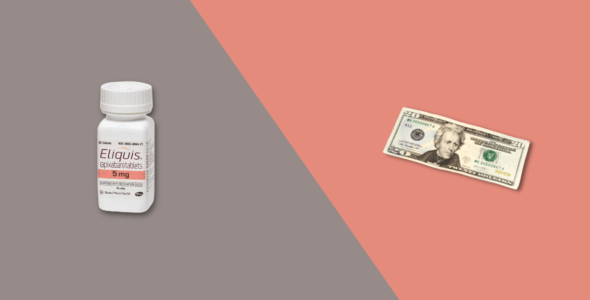Eliquis alternatives: which other blood thinners can I take?
Table of contents
No matter which blood-thinning medication you use, there will always be an increased risk of bleeding problems, but one treatment may suit you better than another. You may be looking for an alternative prescription drug to Eliquis due to adverse effects, drug interactions, or poor blood clot control. Whatever the reason may be, it’s good to know about other treatment options. Continue reading to learn about Eliquis alternatives.
What is Eliquis?
Eliquis is an FDA-approved brand-name drug. It is an anticoagulant, a type of drug that stops blood clotting (from a liquid to a thick gel).
Eliquis is indicated for the following conditions:
- Reduce the risk of stroke and systemic embolism in patients with nonvalvular atrial fibrillation (AFib, or irregular heartbeat known as an arrhythmia)
- Prevent deep vein thrombosis (DVT) in the legs and pulmonary embolism (PE) in the lungs of patients who have had a hip replacement or knee replacement surgery
- Treatment of deep vein thrombosis (DVT) in the legs
- Treatment of pulmonary embolism (PE) in the lungs
- Reduce the risk of recurrent DVT and PE
Eliquis (apixaban) is not recommended for patients with artificial heart valves.
How does Eliquis work?
The active ingredient in Eliquis is an anticoagulant called apixaban. As blood clots, it goes through a process of chemical reactions that turn it from a liquid into a thick gel. An enzyme called factor Xa is an important part of this process. The active ingredient apixaban attaches itself to factor Xa to stop it from working, reducing the likelihood of blood clots forming.
What doses of Eliquis are available?
Eliquis is available in the following doses: 2.5 mg tablets and 5 mg tablets.
The recommended dose of Eliquis is 5 mg orally twice daily. Your recommended dosage will depend on the condition you are being treated for, your age, weight, and your renal function. Eliquis starts working within 3 to 4 hours after you take your first dose.
Always speak with a healthcare professional about any changes to your dose so they can monitor and evaluate your condition. There is a higher risk of blood clots or a stroke if Eliquis (apixaban) is stopped too soon. If you miss a dose, take it as soon as you remember. However, if it is near the time of the next dose, skip the missed dose.
Side effects of Eliquis
The most common side effects are related to bleeding, such as
- Nosebleeds
- Bleeding gums
- Heavier menstrual bleeding
- Unexpected vaginal bleeding
Serious side effects that can sometimes occur when taking Eliquis can include:
- Serious allergic reactions to the medication. Symptoms include hives, chest pain, and trouble breathing
- Bleeding in your brain and spinal column
- Bleeding in your lungs
- Bleeding into a muscle
- Unusual bleeding
- Vomiting blood that looks like coffee grounds
- Tarry stools
Eliquis drug interactions
Eliquis and other medications can interact with each other. These interactions can change how the drugs work and can make side effects more likely. Don’t take Eliquis if you’re taking any other medications to prevent blood clotting, like warfarin. Talk to your physician if you’re taking any of the following:
- An antifungal medicine
- Antiviral medicines for HIV/AIDS
- Anti-inflammatory medicines
- Pain medications
- Medicines for high blood pressure or heart problems
- Antidepressants
- Medicines to prevent epilepsy or seizures
- Medicines to treat tuberculosis
- St John’s Wort
Get your blood thinner medication for only $49 per month
Get StartedEliquis alternatives
Coumadin or Jantoven (warfarin)
Vitamin K antagonists such as warfarin (Coumadin, Jantoven) block the amount of vitamin K available for the blood coagulation pathway to produce clotting factors II, VII, IX, and X. This reduces the blood’s ability to clot or blood clots growing in size in your blood and blood vessels.
It is important to keep the amount of vitamin K in your diet low so that your doctor can calculate the right dose of daily warfarin for you. You’ll get regular blood tests so your doctor can track the effects of your dose and your diet. Your doctor will likely use the international normalized ratio test, or INR, to check on how well your blood can clot. The newer blood thinners such as Eliquis don’t need monitoring with blood clots.
Coumadin is prescribed for people:
- With certain types of irregular heartbeat
- With prosthetic (replacement or mechanical) heart valves
- Who have suffered a life-threatening heart attack
- To treat or prevent venous thrombosis
- To treat or prevent pulmonary embolism
Xarelto (rivaroxaban)
Xarelto contains the active ingredient rivaroxaban and is approved to treat atrial fibrillation. Unlike Eliquis, it can be used to reduce the risk of cardiovascular problems, heart attack, and stroke in people with coronary artery disease. Xarelto may be preferred over Eliquis due to its once-daily dosing.
RELATED: Eliquis vs Xarelto
Pradaxa (dabigatran)
Pradaxa is a direct oral anticoagulant like Eliquis to treat atrial fibrillation. The active ingredient in Pradaxa is called dabigatran. It’s a blood thinner (anticoagulant) that stops your blood from clotting. Dabigatran works by blocking thrombin. When you swallow Pradaxa, molecules of dabigatran are absorbed in your blood, where they bind to thrombin. This stops thrombin from working and blocks a step of the clotting process.
The dose of Pradaxa does not need to be adjusted in people with liver problems unlike with Eliquis. Pradaxa can also be used in children aged 8 years and older.
RELATED: Pradaxa vs Eliquis
Savaysa (edoxaban)
Savaysa contains the active ingredient edoxaban and works as a factor Xa inhibitor just like Eliquis but only needs to be taken once daily instead of twice daily. Savaysa is not recommended in people with moderate to severe liver problems.
Heparin
Heparin injection is an anticoagulant medication that is used to decrease clotting of the blood and it also helps to prevent harmful clots from forming in the blood vessels. While Heparin will not dissolve blood clots that have already formed, this medication may prevent the blood clots from enlarging and causing problems that are more serious.
Low molecular weight heparins (LMWH)
Low molecular weight heparins are more predictable and last longer, which means your doctor doesn’t need to track its effects as closely as with other anticoagulants like warfarin. Low molecular weight heparin drugs include dalteparin (Fragmin) or enoxaparin (Lovenox). Doctors prescribe a fixed-dose based on your body weight. You inject this medication under your skin.
Is there a cheaper alternative to Eliquis?
Fortunately, there are cheaper alternatives to Eliquis available. Warfarin, known by the brand names Coumadin and Jantoven, is a comparable generic drug that can cost as little as $5 per month. Speak with your doctor to find out if Warfarin is medically appropriate for you. Unfortunately, Eliquis generic is not yet available in the United States.
Final word
Some medicines can cause drug interactions with blood-thinning drugs and cause serious problems. Tell your healthcare provider about all the medicines you take. This includes over-the-counter medicines, supplements like vitamin K, minerals, or herbal supplements. Medical advice from a cardiologist or another healthcare professional must be taken when changing from one drug to another.
Medically reviewed
A medical professional has reviewed this article.


Jamie Winn, PharmD
Jamie Winn, PharmD
Dr. Jamie Winn received his Doctor of Pharmacy in 2002 from the University of South Carolina College of Pharmacy, Columbia, SC. Jamie is a medical reviewer for NiceRx.

